One of my favorite films is the 1996 sporting classic Jerry Maguire. The movie left us with many memorable lines including “Show me the money!,” “You had me at hello,” and—the therapist favorite—“Help me, help you.” Yet the more jaded that I am becoming with my field of clinical psychotherapy, the title of Jerry’s mission statement that gets him fired from his job as a high-powered sports agent, is what most resounds. He titled his mission statement “The Things We Think and Do Not Say.”
Like Jerry, I’ve been thinking some things about my field for a long time and know that I may incur the wrath of my colleagues, even some colleagues within my own company (The Institute for Creative Mindfulness) who make their primary living not as therapists anymore, but as trainers, consultants, and educators of other therapists. I write this piece with the full recognition that the majority of my financial success has come through the enterprise of training other therapists in EMDR Therapy, and in a variety of other topics and special interests like dissociation, expressive arts, and spiritual abuse. And with every month of my career that passes, I wonder if the way that we train therapists from graduate school through the continuing education process is sustainable or even viable to promoting real change at an individual and societal level. I am a complicit member of this continuing education “industry” that I am about to heavily critique in this series, and I hope that my perspective may lend some needed commentary that gets all of us—learner and trainers alike—to think about what we’re really doing.
I own a successful company that runs trauma-informed education because most graduate programs in counseling, mental health, social work, and psychology leave their students ill-prepared to deal with the very real impact of human trauma that they will encounter in the people that they serve. These programs also fail to prepare their students for the reality of what a thankless, soul-sucking, and mind-numbing job being a helper can really be, especially if one is working in an agency or hospital system with limited resources…and where mental health providers are poorly treated and overworked. I quickly learned that my teaching talents were better spent offering clinically relevant training to already working clinicians or the newly graduated who were hungry for more, instead of teaching in the graduate school setting. It’s little surprise that I ended up feeling this way. Back in 2006 I literally went running from the first Ph.D. program that I attended at a state school here in Ohio, feeling that I was unsafe with that program’s very out-of-touch academics who seemed to know little about the real world of clinical work.
And while I’ve enjoyed offering clinical trainings for fifteen years, I’ve started to notice some serious problems about the existential doubt that exists in the hearts of so many therapists. This doubt engenders a market for trainings that tell therapists exactly what to do in the vein of “Cure Trauma in 10 Easy Steps,” or “Eradicate the Impact of Trauma with This ‘One and Done’ Method.” And then therapists feel that they need all of these step-by-step trainings in the latest and greatest methods and models that are out there in case they miss something. And while you’re at it, weary therapist, why not pursue an entire certification program in such a method that will certain give you what you need to promote yourself as a specialist!?!
I vividly remember a consultation session I provided to one of my very brilliant EMDR Therapy students who met me through my recovery work with Trauma and the 12 Steps. This student was so confused because not only were they doing training in EMDR Therapy, they were going through the three year Somatic Experiencing Practitioner training at the same time, and also pursuing another major certification. I wish I could say that this student is an outlier yet every year I seem to encounter more and more therapists who feel that they have to be trained in everything, often overwhelming themselves by doing it all at the same time. At one point during our consultation I stopped my student and said, “What would happen in this moment if you would just trust yourself?” Knowing this person’s skill and the level of their recovery, it was ethical to ask such a question. My assessment is that they knew what to do—but the overwhelm from all of the mixed messages of the various methodologies was tripping them up and ultimately causing them to doubt themselves as a therapist and even as a person.
Of course, I am not anti-training and the pursuit of knowledge. Indeed, I feel it’s responsible for therapists working in the modern era to have solid practice competency in at least one or two embodied approaches that focus on memory reconsolidation, on top of basic trauma-informed practice fundamentals. While some graduate schools are starting to engage in paradigm shifts, so many clinicians still do not get what they need until they pursue continuing education. Yet this drive to pursue every new modality that is out there not only promotes the sense of doubt and confusion like it did with my student, it can also drive many clinicians further into financial strain in pursuing “the answer,” when their money and time may be better spent on pursuing their own trauma work and healing process. When I used to teach a course on trauma-informed basics, reviewing the various modalities that are out there for treating trauma I boldly declared that if any of the content we covered on trauma that day left participants feeling uneasy, their money would likely be better spent, at least for the time being, on their own healing rather than on extensive training programs or certifications. There may be a time for those down the road, yet in my experience students can most fully embrace trauma-focused modalities like EMDR Therapy, Somatic Experiencing, and a whole host of others when they have a personal connection to what it means to work on themselves.
Sadly, such a statement can still be regarded as controversial in the helping professions and amongst trainers. People can find the statement that I offer trainings at this point even more puzzling. I lead with, “I am not the kind of trainer that is going to tell you exactly what to do. Sorry/not sorry! In working with dissociation especially, you really need to discover your own relationship with dissociation and connection to the material in order for it to make sense clinically. I don’t give you step-by-step formulas, especially for working with the impact of trauma, addiction, or dissociation.” Without question, I could make even more money as a trainer if I better packaged my material into a neat, jazzy-sounding protocol or step-by-step method that plays into therapists’ doubts that who they are and what they offer isn’t good enough. Yet my qualitative soul has never allowed me to go this route. If therapists feel that they need this kind of education, there’s plenty of it that is out there. Yet I still maintain that the best way to become better as a therapist is to have an experience with the content that you are studying. This experience often involves doing your own work or introspection, or at least more personally engaging with the material that you are studying. For instance, instead of being able to recite models for cultural humility, consider taking trainings or having healing experiences that facilitate you having deep or uncomfortable conversations about how you’ve been socialized and how this impacts the way you offer therapy. Engaging in expressive arts or somatic processes is part of how you will make the needed connections for being the kind of therapist that your clients need in this modern world.
I am personally no longer interested in offering trainings that are not rooted in process and experience. And while many of my students enjoy learning in this way, it may or may not surprise you to hear that even more potential students are averse to this kind of learning. For some I’ve spoken to over the years to get a sense of the blocks, there can be a hesitancy to “go there” with their own work. Yet the bigger issue seems to be that people want me and other trainers to tell them exactly what to do in every possible contingency. And human experience, in my estimation, simply does not work that way. As a former student of mine and Dancing Mindfulness partner Jennifer Emch once said in an interview, “Life isn’t scripted and neither are people.” This statement has resonated with me ever since she uttered it. And while I can acknowledge that we all may need some kind of script to learn good therapy technique in the beginning—at what point does miring ourselves in more scripts and method actually choke the flowers that we are from fully blossoming?
I still believe that we need to be perpetual students who are open to new experiences. Several years ago I made a decision that in pursuing my own continuing education and growth, I would only select trainings or retreat experiences that excited my soul. I knew from intuition and from some of what I student in the common factors research and The Heart and Soul of Psychotherapy projects (Duncan, et al., 2009) that I could best convey to my clients what excited me. And becoming a more insightful person continually working towards my own healing would transfer into my therapy room and into other spaces where I work. As an example, I pursued a full 500-hour yoga teacher training program in a lineage whose approach spoke to me and my spiritual journey at that time. Of course I’ve gone on to share so much of what I got in that program with others, yet that was not my motivation for signing up. I had the same experience several years prior when I formally began studying expressive arts with one of my mentors, Dr. Christine Valters Painter. If you happen to get a piece of paper or certification at the end of formal process, okay; yet you may not get the fullness of what an educational experience can offer if the product instead of the process is your focus. As Christine eloquently states in her most recent book Birthing the Holy: Wisdom from Mary to Nurture Creativity and Renewal (2022):
Ultimately, we gain wisdom from life experience. It isn’t learned through intellect or
reading books (as much as we might hope this is true with our shelf heavy with more
and more tomes). Wisdom comes through navigating life experiences that stretch us, push
us to our edges, all while staying as present as possible and not running away… Wisdom
allows us to hold all of it without needing to come to conclusions or make final black-
and-white statements about our experiences (p. 68).
Let yourself have an experience. And if this prospect scares you because you would like a step-by-step guide for how to have an experience, notice that. Breathe with that, and see what happens. Ask yourselves what you might need to feel safe enough to learn in a more experiential and personal way. Consider how we ask the people we serve to engage in life outside of their established comfort zones all the time, usually without a defined script.
When people in my circles and would-be students ask me what training or certification they should pursue next, I ask them to get personal as I’ve challenged readers to do in this piece. What training or certification excites your heart and soul, and which one would allow you to have the deepest experience? And perhaps, consider, that it may not be a formal continuing education training that gives you what you are looking for in your continued growth and development. I am quite candid with those who are interested in my company’s Certificate of Expressive Arts Therapy (which meets the basic training requirement if you want to go on and pursue registration through the International Expressive Arts Therapy Association) that the requirements are extensive to meet international standards. There are many training hours and a lot of potentially costly supervision hours involved. And with expressive arts being a fascination of the field yet not regarded as highly as more manualized and standardized approaches to therapy, I am clear with people that the piece of paper you get may not open the doors you are anticipating. Yet pursue this program if you want to further cultivate your own expressive arts practice. Our program is fundamentally about having a personal connection to the content, which is what you would need to best transfer it into the scope of other therapy you offer. And also it can hopefully provide you with some needed outlets for your own self-nourishment as therapists in modern times.
Yes, we all have to check our 30-hour boxes every three years and unfortunately continuing education boards are becoming more, not less, restrictive on what they count as continuing education (we’ll grind that ax in a future piece). Do your best to find the sanctioned hours that will help you grow and not just get a step-by-step formula and a new suitable for framing certificate for your wall. Yet also realize that to truly transform yourself and our field, some of the deepest work you do may involve your own therapist/trauma specialist, a Shaman, a spiritual director, a yoga teacher, or a solid athletic coach or trainer in your community who can help you work with your entire self. For instance, my aerial yoga teacher and my jiu-jitsu coach were two of my most significant influences in my personal and professional development.
Find the people who, through experiences, teach you how to be more present in life and your internal experiences of it. These people and experiences will help you to help yourselves and the flower that you are growing into will become part of a magnificent garden or a natural landscape where flowers can constantly mature with the seasons. When I think of the future of my field which I still fundamentally love so much, these vibrant and varied colors are what I wish to see.
References
Duncan, B.L., Miller, S.D., Wampold, B.E., Hubble, M.E. (2009). The heart and soul of change: Delivering what works in psychotherapy. (2nd ed.) Washington, D.C.: American Psychological Association.
Paintner, C.V. (2022). Birthing the holy: Wisdom from Mary to nurture creativity and renewal. Notre Dame, IN: Sorin Books.

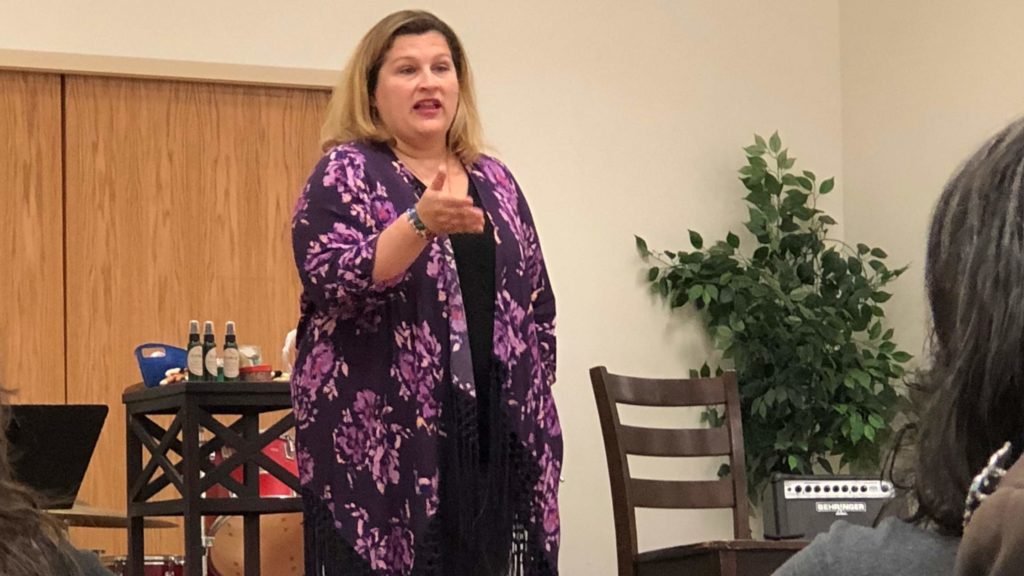

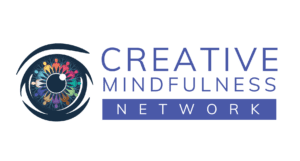
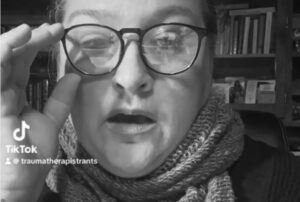
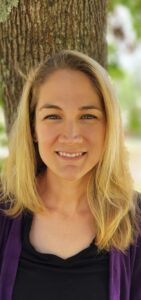
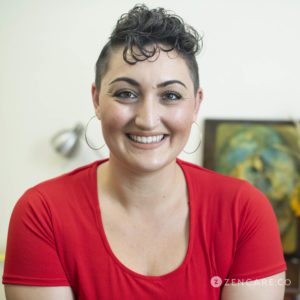


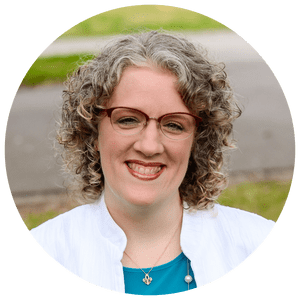
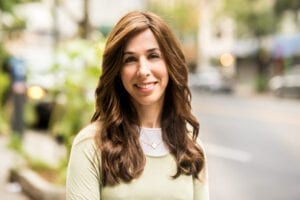
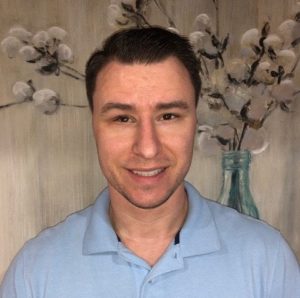
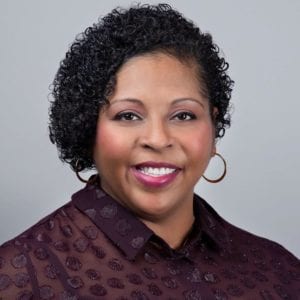
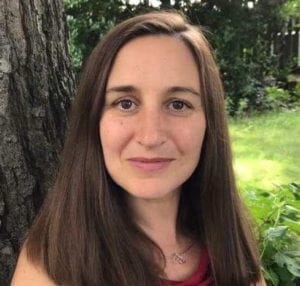

15 Responses
Jamie,
Thank you so much for your candor. It has been my observation that master’s level counselors are most susceptible to the lure of having certifications and wanting cookie cutter therapy. As a psychologist trained the the 70’s we were encouraged to engage in our own therapy and we can even earn MCE’s from being in therapy. Trusting my gut and instincts are my best asset. Of course I am continuing to learn and do my own research, but taking X course and receiving a certificate does not make me an expert in X. I have recently switched to all telehealth and my licensing board as a psychologist required obtaining so many hours to be competent which I appreciated as a tech avoidant person. I did want the certificate because of my board and professional necessity. I have never wanted such certification after 12 or 50 hours of training because it means nothing to me. I understand the need for such, but I have resisted because that training does not guarantee my expertise or effectiveness. Thank you again for article and encouragement to do your own work.
Mindfulness-Based Stress Reduction training 2 decades ago informs all I do as a therapist
That is a natural outgrowth of my own practice before and after grad school.
I could not agree more. I watch young colleagues get certification after certification and still feel as if they need more. It occurs to me that they are less interested in walking a healing path with clients, but on a quest to heal themselves with “the Magic Bullet”. My observation of the clinical practice in many of these cases appears a bit chaotic.
I have long lingered with the knowing that as a human, my time & energy is limited, and that while I wish I could do so many of the trainings that come across my radar (and read sooo many books), I just cannot absorb it all… and thus cannot be competent at applying it all….
Increasingly over the years, my impression from others within this field of counselling has been “how dare you not do more” (more training, more certifications, more reading). How could I be competent enough?
And yet, there’s no denying the clinical successes and healings that have flowed for my clients over the years, because of my presence with them. What angst has ruminated around in the back of my mind sooo often!
Finally, I found another who articulates this dilemma and challenges the drive for “more training”. Thank you!
I am profoundly appreciative of Jamie and this (specific ) contribution absolutely resonates within me. Jamie breathes life into the creativity of therapy being relational. Her words are to me valid, fiercely bold and so timely . I often question if I ‘should’ strive to get another ‘higher’ , ‘advanced’ ‘new’ ‘most up to date’ training and chasing paper to market my own value is an insatiable quest. I worked in a public system (NHS in UK) for 25 yrs and feel now at 62 yrs in private practice that the pressure increased for me personally during the pandemic and ongoing , with both the opportunities and the swamping of experts selling more and more information online . It’s a paradox of the mutuality of wanting to learn and also the pressures of consumerism , marketing and sales influencing and reinforcing the get more do more behaviour as being imperative to be included and worthy.
You always manage to write beautifully the things I am feeling. Thank you for this.
I have thought this for years. I graduated with a MSW in 2010 and have pursuing more knowledge in trauma work. The first one I took was with you in Billings, MT and it changed my whole direction of therapy. Unfortunately because of life happening I could not afford many of the classes I wanted to take, so I read books and still do. My EMDR training was phenomenal and I completed the training in 2012. I have only recently begun my own healing with a very insightful therapist and I have learned so much more in my own healing process than I could ever have imagined. Many therapists “check the box” on continuing education. I don’t want to waste my time, so I always try to find some that will further my knowledge base. I could probably make more money pursuing more certifications and trainings; however, after guidance from others and listening to my own inner voice in the stillness of my soul, I have discovered I am more of an individual healer rather than a teacher of the healers. After opening my private practice, this is no longer a job for me. It feels more like my life’s quest of fulfillment.
The universe works in astonishing ways! I am currently experiencing just this! Not even a month ago I told my supervisor I feel dead inside. Since then I have been in the right place at the right time to meet energetic and familiar souls. I’ve begun my journey in Reiki- after my first session, I told her “I think that was just the top of the iceberg. I have been doing therapy work for over 5 years and I feel like I’m an open channel.” To which she agreed enthusiastically. She told me that she teaches also and would love to work with me. I took that to mean she felt I possessed this capacity for energy work. I’m so elated to be on this journey. Reading your article resonated with me and I felt that bravery of saying something unpopular but important. Staying true to what’s within you and sharing because it is authentic and holds valuable truths. Thank you Jamie. Your bravely sharing of this is beautiful and wise and I look forward to engaging with more of your wisdom. …And not because it speaks to some insecurity, but because it speaks to my own experiences and authentic self coming alive and blooming in this season. ✨️
I loved this article. It was shared in one of my psychotherapist groups. I appreciate the hat-tip towards intuitive healing – first your own and then to others. Besser Vanderkolk said in a training I took from him that if what you’re doing is working great for your clients and they’re getting better then you might not need what he’s offering (as I understood it). I love the unspoken recognition (from what I take from it) that it isn’t JUST evidenced based practices that work. My clients get more functional and happier rather quickly and I don’t have a ton of certs (aside from my license) but I’ve engaged in a lifetime of learning to be a healer since I was a child. I work with conscious intention of energy healing and it works to open doors for them to step through for rapid change. I see therapists touting tons of certs in this and that and it feels intimidating. But then I look at my work and see 20 years of successful clients and know something that can’t be put on paper is working. I sometimes feel the additional training takes my mo-jo away from me and replaces it with fear and insecurity. Until I am back in my zone. I jokingly call it “being delusional” “delusional” that what we need comes through us in the session by inviting in that higher wisdom, healing energy and soul purpose in growing through the pain. I would LOVE to take a course from you.
I love this piece so much. Thank you!
Dr. Marich, this is exactly what I’ve needed to hear. I am taking a deep breath of relief as I write this comment. Thank you for your boldness, strength, and wisdom. Thank you for sharing your brilliant mind and compassionate wise heart with us. I am 40 years old and have practiced for 13 years, and sometimes I am overwhelmed with anxiety about not knowing enough, not having enough training. In the past few years I have really immersed myself in learning and am realizing that the more I know, the more I don’t know, but that is ok. Thank you for offering some guidance as I continue my growth. I can’t thank you enough. Many blessings to you and yours Dr. Marich.
What a powerful lesson here. The ego preaches how we are not enough and goads us to get more qualifications from fear while Spirit knows that we are whole and complete as is. Since most of us believe in the symbols of the world we tend to get a qualifier, here and there, to get clear and to feel confident. But obsessing over more certifications only reflects conscious and unconscious fears manifest as guilt, grief or some sense of loss, back to us.
Feeling like you are not enough – solely in your mind – goads one to overcompensate with certifications. If you receive enough approval from the world, maybe, just maybe, you are good enough and deserving enough to be loved and to acquire worldly things like money, fame, popularity or even the opportunity to serve more. Forgiving this mad ego idea lets you simply have fun, be open, enjoy the ride and receive whatever riches spirit knows you can use, practically.
Keep on inspiring.
Agree completely
Hi Jaime! I am a Therapist and expressive arts person:) I saw your post on Instagram about this and then went your blog to read more! I share the same sentiment as many of the other’s who have commented. I have just come to terms (before seeing your post) on the part of me feeling so insecure about my ability to this work and how marketing is playing to my insecurities, particularly around dissociation. I have also found the marketing to be overwhelming for trainings since the pandemic began. There is so much more ease in the work with clients when I stop trying to listen to all the rules that trainings give and trust my intuition. I am just so pleased that you are speaking to this. Hearing it from you has felt freeing. The truth is I love this work and I care deeply for each client I work with and have learned so much from each of them. I look forward to all my future learning, trainings, consultations that speaks to my heart and soul.
#nailedit
Like too many of us, I tried to “do all the things” as far as getting more letters after my name. I was feeling that pressure and I started that process before I even finished grad school. It took me a long time before I realized that a. This pressure to seek certifications feels like a pyramid scheme, and b. I’ve met too many practitioners with every conceivable set of letters after their name that really weren’t very good at what they did. Those certifications didn’t do them a damn bit of good. I’ve spoken to them individually, and sat in staffing meetings with them and listened to them explain that their clients were resistant to treatment (I despise that label! The client isn’t getting better, therefore it’s the client‘s fault, not the therapists. *eyeroll* but I digress…) because they had difficulty following “Protocol X” by the letter, step-by-step rigidly within whatever box the practitioner decided was the magical answer.
Anyway, before I stand on my soapbox a little too long thank you for saying this. I read this post ages ago when it first came out, and I just reread it this morning and it really hit home this time just by virtue of my evolution as a provider. Thank you so much for saying what needed to be said, we can only hope more people hear and receive the message!